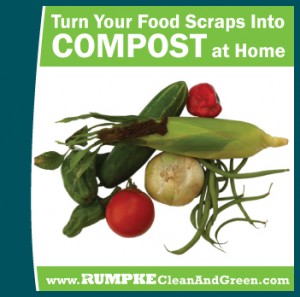 The next time you toss food scraps from the dinner table into the garbage can, think about this: you are actually throwing away important ingredients that could be composted and used as mulch or as enrichment for the soil in your garden. Composting is the natural breakdown (decomposition) of organic materials. Compost is great because it loosens the soil and provides better drainage, increases moisture retention in porous soils, and provides essential nutrients.
The next time you toss food scraps from the dinner table into the garbage can, think about this: you are actually throwing away important ingredients that could be composted and used as mulch or as enrichment for the soil in your garden. Composting is the natural breakdown (decomposition) of organic materials. Compost is great because it loosens the soil and provides better drainage, increases moisture retention in porous soils, and provides essential nutrients.
Just as you rely on a favorite recipe for culinary success, it’s important to pay attention to the “compost recipe.” This recipe includes a mixture of materials that add carbon (“brown stuff”) and nitrogen (“green stuff”).
It’s best to use a 30:1 ratio, which is 30 parts carbon to 1 part nitrogen. Carbon-rich material includes dead leaves, wood chips, sawdust, dried grass and straw. Important sources of nitrogen include fresh grass clippings, coffee grounds, and fruit and vegetable scraps. Turning the pile every four or five days provides oxygen which helps the microorganisms break down the various components of the mixture. Water is necessary to keep the pile moist. Rain water is usually sufficient but during a dry spell water should be added if the compost material is dry and flaky.
Every good cook knows that the wrong ingredients can result in a food fiasco. The same is true with your compost. Do not compost meat scraps, bones, grease, butter or dairy products, oils and fats, weed seeds, diseased plants, household pet waste, charcoal ash, anything that does not biodegrade (for example, plastic or synthetic fibers) and plywood or pressure treated wood.
Find out about recycling service for your home.
About the author: Anne Gray is the education specialist for Rumpke.